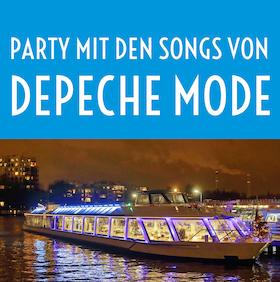
The Connection Between Depeche Mode and Vietnamese Americans in California

### New Wave: A Cultural Renaissance in the Vietnamese-American Diaspora
**A Documentary and Archive of Resilience**
Elizabeth Ai’s upcoming documentary, *New Wave* (2024), is a powerful exploration of the Vietnamese-American experience, particularly focusing on a pivotal cultural moment in the 1980s. Born from the trials of resettlement after the Vietnam War, the documentary weaves together music, family archives, and personal stories to capture the adaptation and reinvention of identities among Vietnamese refugees in the United States.
Spanning six years of research and creative dedication, Ai’s work is an insightful lens into the unexpected connection between Euro synthpop music and the Vietnamese diaspora. Delving deeply into the archives and the community, the project reflects how music provided a form of escape and expression for immigrants navigating the duality of their new reality: reconciling their Vietnamese heritage with their American surroundings.
—
**Cultural Revitalization Through Music**
For Vietnamese-American refugees of the “1.5 Generation” (those who came to the U.S. as children or young teens), New Wave music symbolized more than mere entertainment. Bands like Depeche Mode, Duran Duran, and Talking Heads struck a particular chord with this demographic. Their upbeat rhythms, bold visuals, and futuristic aesthetic provided a vibrant means of cultural self-expression during a time of displacement.
Ai’s research revealed that Vietnamese refugees discovered New Wave music not only in Western record stores but also through localized reinterpretations. Record shops in places like Phước Lộc Thọ (the Asian Garden Mall in Westminster, California) proliferated with cassette compilations of Viet New Wave covers, blending original synthpop sounds with Vietnamese lyrics and cultural twists. These cover songs became anthems for an immigrant community seeking to assert a hybrid identity in their adopted homeland.
Music was more than escapism — it was a survival mechanism. Synthpop’s futuristic, experimental bent complemented the refugees’ own experiences of reinvention as they rebuilt their lives in the U.S. When juxtaposed against the pressures of both maintaining traditional Vietnamese values and assimilating into American culture, New Wave music became a safe space for individuality and communal belonging.
—
**The Historical Context: Vietnamese-Americans in the 1980s**
The backstory of *New Wave* is rooted in the aftermath of the fall of Saigon in 1975, when over 1.5 million Vietnamese fled their war-torn country. Many of these refugees were resettled in the United States through sponsorship programs, with a significant population finding a new home in Orange County, California. The area’s warm climate and proximity to Camp Pendleton — one of the first refugee camps established in America — turned it into a cultural hub for this burgeoning community.
As these refugees built new lives, they forged spaces uniquely their own. Markets, restaurants, and music stores in enclaves like Little Saigon became cultural sanctuaries where Vietnamese traditions mingled with elements of the broader American culture. It was here that the New Wave aesthetic caught fire, inspiring a marriage between Eastern and Western sensibilities.
—
**Archiving a Cultural Legacy**
During the early pandemic lockdowns of 2020, Ai shifted her focus from filming to archiving, igniting a crowd-sourced initiative to collect family photographs and personal stories through Instagram. The response was overwhelming. Archives of spiky hair, shoulder-padded blazers, and neon-lit dance floors emerged, capturing the vibrancy of 1980s Vietnamese-American life.
These photos became the foundation of *New Wave’s* sister book, *New Wave: Rebellion and Reinvention in the Vietnamese Diaspora* (2024). Designed by Mỹ Linh Triệu Nguyễn of STUDIO LHOOQ, the book is a visually rich compilation of essays, photographs, and cassette tape cover art. Together, it offers a cultural excavation of the era, chronicling not only musical evolution but also the broader social changes in the Vietnamese-American community.
—
**Expanding the Narrative**
Traditionally, Vietnamese stories in Western media have been confined to a narrow set of perspectives — victims of war, antagonists, or the “model minority.” Ai’s project challenges this reductive framework by introducing a more nuanced narrative. In *New Wave*, music becomes the foundation for reshaping the post-war identity of a community long overshadowed by trauma and stereotypes.
The documentary and book also shed light on cultural icons like Lynda Trang Đài, whose electrifying performances in *Paris By Night* (a Vietnamese variety show) brought this movement to life for audiences across the diaspora. By blending traditional Vietnamese musical tropes with the pulsating beats of Eurodisco, Đài became a symbol of cultural synthesis, appealing to multigenerational and bilingual audiences.
—
**Music as a Source of Joy and Healing**
Beyond its historical exploration, *New Wave* offers an emotional resonance that underscores how art and music help bridge generational gaps. Ai’s